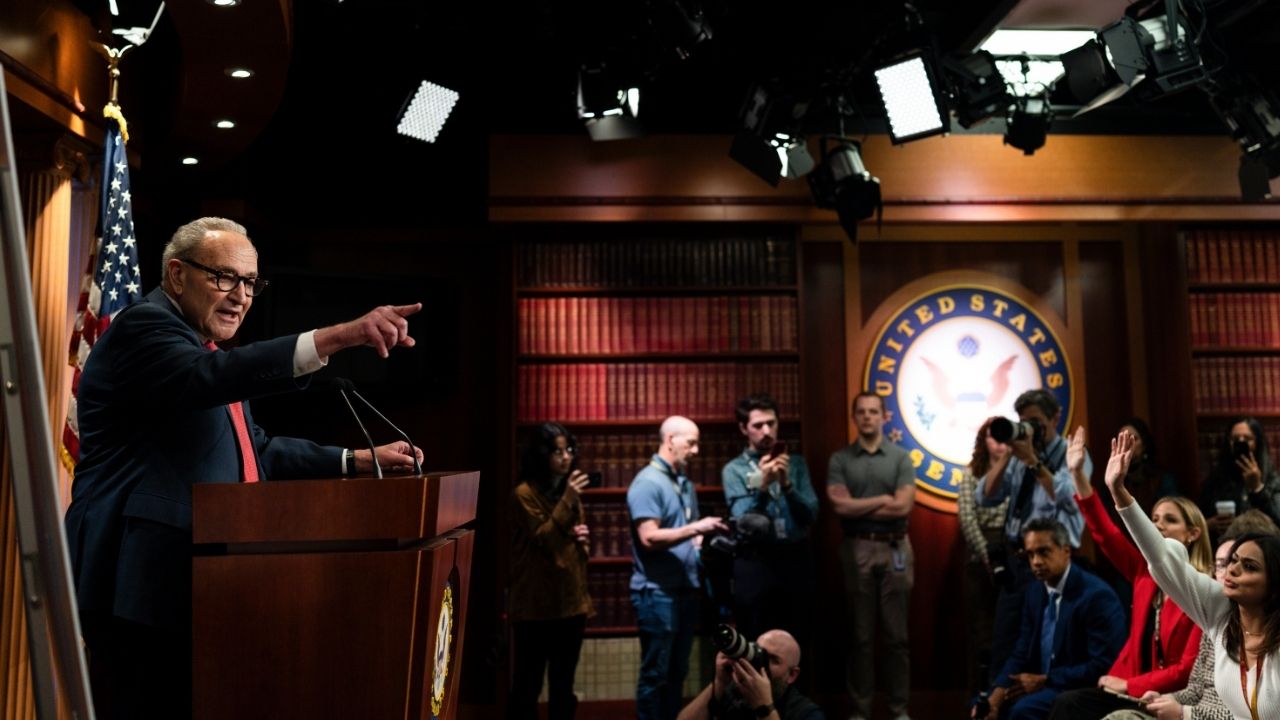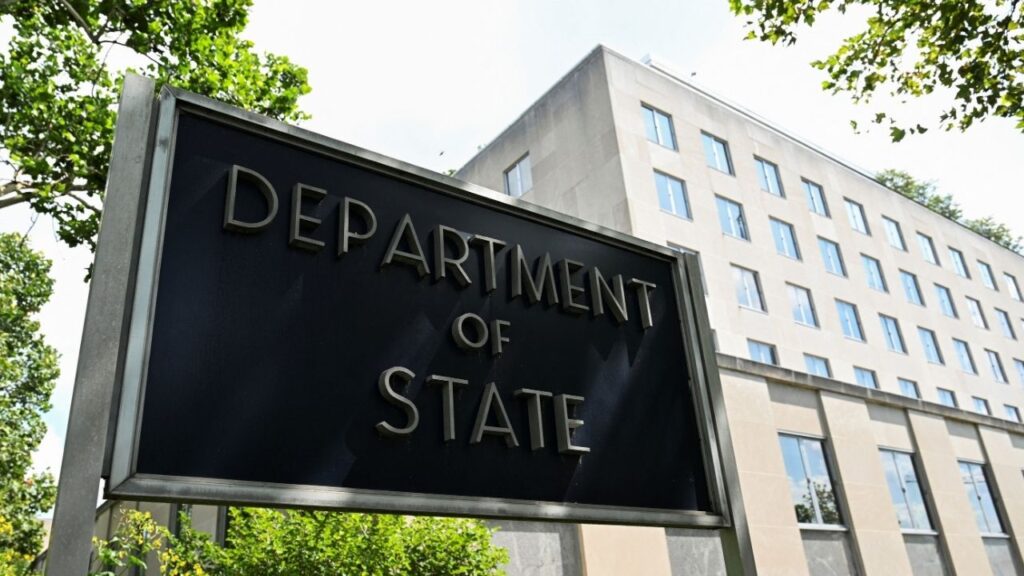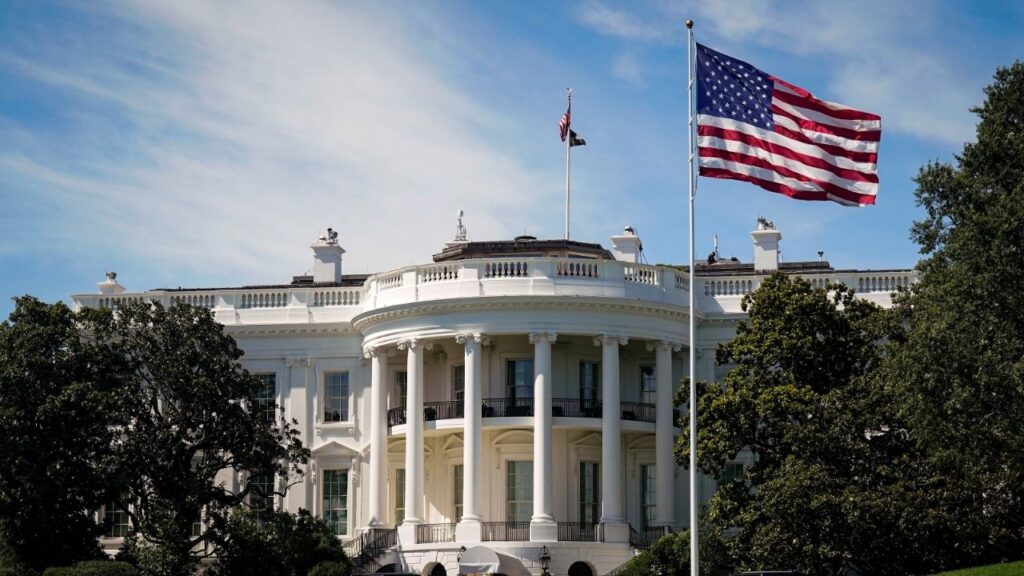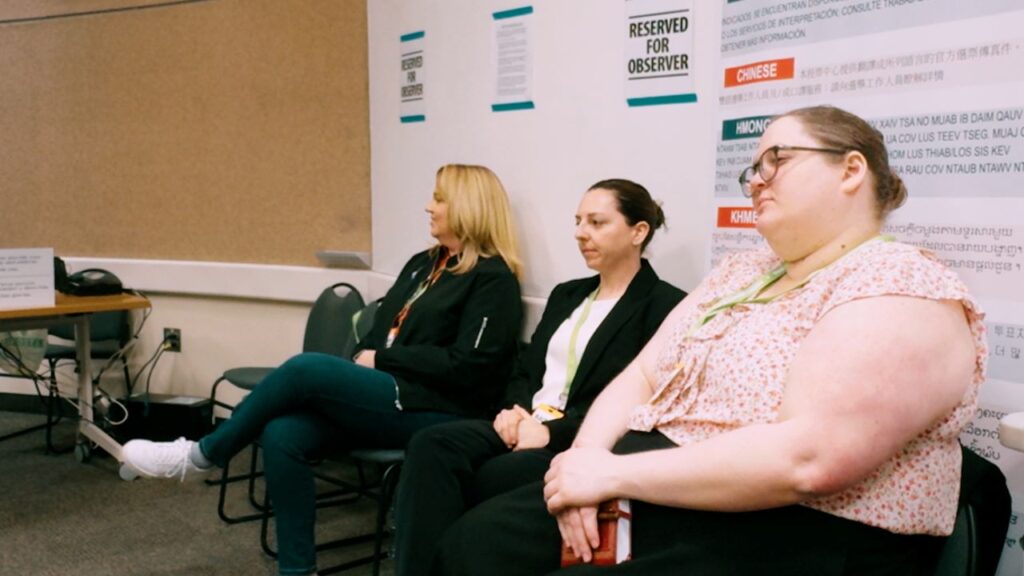Senate Minority Leader Chuck Schumer (D-N.Y.) speaks during a news conference at the Capitol in Washington, on Wednesday, Nov. 5, 2025. The top Senate Democrat was reluctant to say why he stayed on the sidelines of the mayoral race and denied that Zohran Mamdani’s victory reflected poorly on him. (Tierney L. Cross/The New York Times)
Share
|
Getting your Trinity Audio player ready...
|
As Zohran Mamdani was making history in New York City on Tuesday night, telling supporters at his victory party that “the future is in our hands,” Sen. Chuck Schumer was far away on the sidelines, watching one of the biggest political moments in his hometown’s recent history from Washington, D.C.
The Senate Democratic leader was busy, certainly, helping his caucus navigate the government shutdown. But he was also decidedly not on the Mamdani bandwagon, having chosen not to endorse his party’s nominee for mayor of his own city, even at the risk of looking out of touch with the prevailing energy back home.
If Schumer’s plan has been to keep Mamdani at a distance, the senator has ended up being the one who appeared distant — less the avatar of reenergized Democrats than a leader from an earlier era. In the meantime, a young mayor-elect rallied the party’s troops to victory and forged a new political coalition in the process.
“In some ways, his silence itself is a strong statement,” said Ana María Archila, a co-director of the left-leaning New York Working Families Party. “It speaks to a kind of unwillingness to wade into the waters of what the future of the party should be.”
The Rev. Al Sharpton, the New Yorker and civil rights leader who did not endorse but hosted Mamdani at events, was even more blunt, suggesting that Schumer’s arms-length treatment of Mamdani showed that the senator did not fully grasp “the momentum and feeling and passion that was driving a lot of voters” in his hometown.
The rise of Mamdani, 34, comes at a complicated moment in the career of Schumer. Long a lion of New York politics and a key architect of election wins for Senate Democrats over the decades, Schumer, 74, presided over the loss of the majority in 2024 and faces a tough Senate midterms map in 2026. It now looks to some Democrats as if he doesn’t understand that the party needs to change, or possess the communication gifts needed to win in the midterms. It’s a striking development, given Schumer’s long embrace of the kind of kitchen-table issues that Mamdani has repackaged as an affordability agenda.
To some extent, Schumer has been here before. As he approached reelection in 2022, he made a point to build relationships with the party’s left, including with Rep. Alexandria Ocasio-Cortez, a progressive star whose rise stunned the establishment. At the same time, centrist Democrats were urging him to mind the middle so he could keep the party’s then-Senate majority intact.
Now, with Democrats eager to reclaim power, the question is whether veteran leaders like Schumer can figure out how to meet the political moment and carry the Democrats forward.
Schumer Looks Ahead
Schumer, for his part, seems eager to look ahead.
He and Mamdani had a phone call Wednesday morning to discuss their shared goals of tackling affordability and mounting opposition to Trump, according to people familiar with their call. And in an interview, the senator dismissed concerns that by declining to back Mamdani, he was out of touch with the base of the party he was supposed to be leading.
“Through many different mayors and many different philosophies, I have had a North Star: help New York, which I love,” Schumer said. “That is not going to change.”
Schumer’s allies and several other Democrats argued that the prospect of endorsing Mamdani, a democratic socialist and vociferous critic of Israel, was more complicated than a simple embrace of a party nominee by the senator, who is the highest-ranking Jewish elected official in the country.
“Sen. Schumer has had to balance the energy that Mamdani has inspired with young voters with the reticence older voters and the business community have felt toward the mayor-elect, with Israel being another complicating factor,” said Ben Tulchin, a Democratic pollster who worked for Mayor Eric Adams’ 2021 campaign and polled for the business community in this election.
Some Democrats close to Schumer said his posture toward Mamdani was also shaped by the senator’s focus on helping his party pick up Senate seats next year in key states like North Carolina and Ohio, where being linked to Mamdani’s politics risks turning off moderate or conservative-leaning voters.
Stu Loeser, a former Schumer aide and a political strategist, said Schumer’s decision to remain silent in the mayoral race might ultimately benefit New Yorkers. If Democrats can win back control of the Senate, it would help Schumer secure more funding for the city.
“It’s far more likely that someone in Forest Hills, North Carolina, misunderstands Chuck Schumer and Mamdani than someone in Forest Hills, Queens, where they’ve got to know Chuck Schumer and they’ve gotten to know Mamdani over the last few months,” he said.
Schumer was far from the only prominent Democrat to withhold support from Mamdani. The mayor-elect won without endorsements from New York’s other Democratic senator, Kirsten Gillibrand; its state party chair, Jay Jacobs; or Hillary Clinton, the former New York senator and the last Democratic presidential nominee from the state, who expressed reservations about him in the final stages of the election. Rep. Hakeem Jeffries, the Democratic House minority leader, endorsed Mamdani only toward the end of the race and never campaigned alongside him.
—
This article originally appeared in The New York Times.
By Michael Gold and Katie Glueck/Tierney L. Cross
c. 2025 The New York Times Company
RELATED TOPICS:
Categories
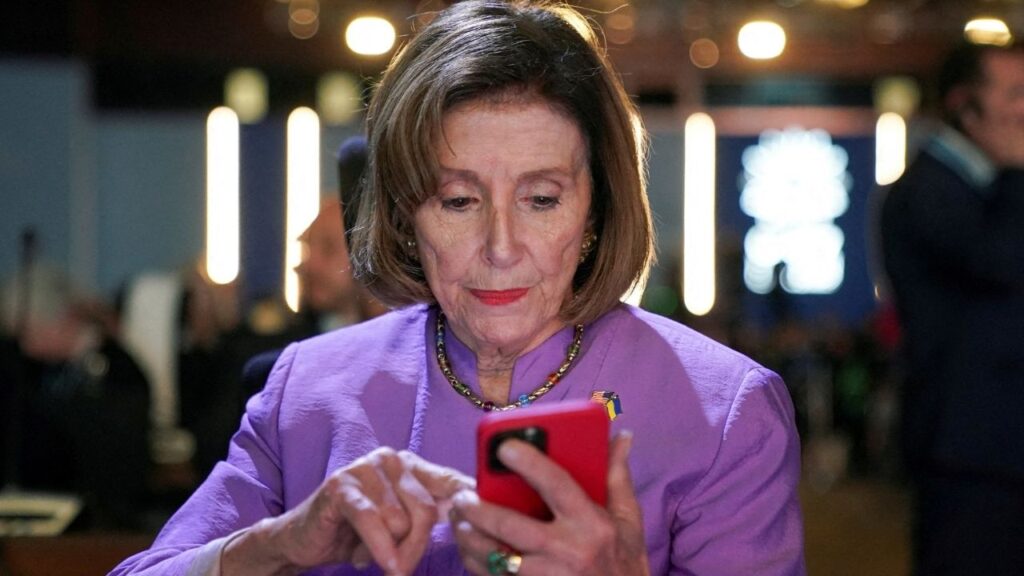
Ten US House Races to Watch in 2026: Retirements Shape Key Contests

Nick Fuentes’ Rise Puts MAGA Movement in a ‘Time of Choosing’




